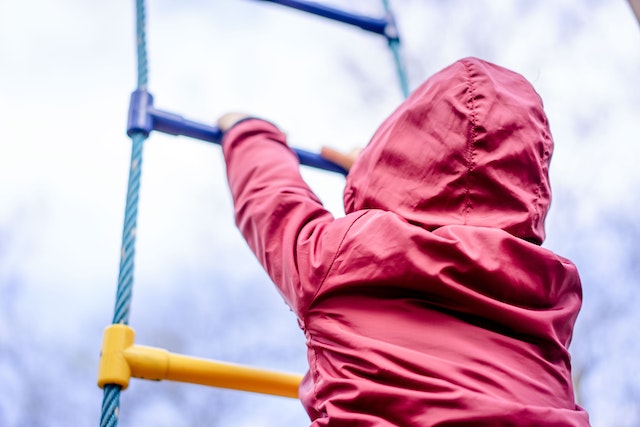Courage is not a quality that some people have and others don’t. Courage is something that can be learned, practiced, and cultivated. Just like any other skill or ability, the more we use it, the stronger it becomes. Here are some tips to help you teach your child to be brave.
1. Talk about brave as though they are already there.
Children either step up to expectations or down to them. When you talk to your child about courage, present it as something they already have in them and just need to bring it to life.
‘I know how brave you are.’
‘I love that you make hard decisions sometimes, even when it would be easier to do the other thing.’
‘You might not feel brave, but I know what it means to you to be doing this. Trust me – you are one of the bravest people I know.’
2. Allow them to be imperfect.
Help your child embrace failure. Teach them that failure and rejection are often a sign that you’ve done something brave. Help them understand that every experience gives new information and new knowledge – opportunity to learn something new. And because the brave ones have have the knowledge and experience that comes from trying, failing, and trying again, they are able to succeed.
3. Celebrate progress.
Teach them to celebrate progress, not perfection. The goal is not to be perfect; it is to be better than you were yesterday. Teach kids to focus on their progress, not on where they think they should be. ‘You did it! You were so brave!’ ‘I can see how much courage it took for you to do that. Well done!’
Recommended reading: Best Books To Teach Kids To Be Brave
Recommended reading: 9 Books To Help Kids Manage Their Fears and Phobias
4. Help them find their support network.
Teach kids that it’s okay to ask for help. It takes a lot of courage to admit that you need help, but it is a strength, not a weakness. Help them find the people who will support and encourage their brave – friends, family, mentors, teachers, coaches.
5. Encourage them to practice courage every day.
Just like any other skill, the more we use it, the stronger it becomes. Teach kids to look for opportunities to practice courage in their everyday lives. It could be as simple as speaking up in class or trying a new food.
6. Help them find their voice.
Teach kids that they have a right to speak up and be heard. Teach them to use their words to express their needs, wants, and feelings. Teach them that it is okay to be assertive.
Recommended reading: 12 Comforting Picture Books For Kids With Separation Anxiety
Recommended reading: Books To Celebrate Kid’s Unique Strengths and Struggles
7. Help them find their power.
Teach kids that they have the power to choose how they respond to difficult situations and people. They can choose courage over fear, kindness over cruelty, love over hate.
8. Restrict being self-critical at all times.
Teach them to be gentle with themselves. Teach kids that it’s okay to make mistakes. Teach them to forgive themselves and others. Teach them that everyone is doing the best they can with what they have.
9. Model courage yourself.
Show them what it looks like to be brave. Teach them that courage does not mean there is no fear but the willingness to act despite it. When children see you being brave, they will know that it is possible for them too. And that is the most powerful lesson of all.
What are some other ways that you teach your child to be brave? Share your ideas in the comments below.
If you found this article helpful, please share it with your friends and family. And if you want to receive more articles like this direct to your inbox, subscribe to our newsletter. Until next time, be brave!




